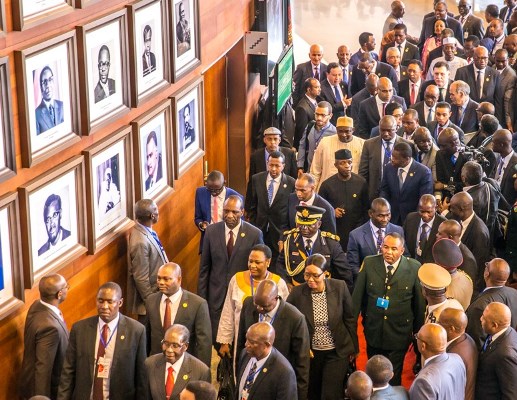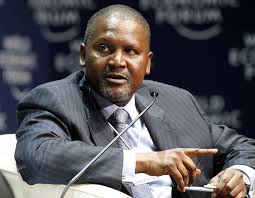
The Acting President, Prof. Yemi Osinbajo, is representing Nigeria at the 29th Ordinary Session of the Assembly of the African Union in Ethiopia.
The session held on Monday after a week-long pre-summit activities involving ministers and other stakeholders. Acting President Osinbajo (middle) in Addis Ababa for 29th AU’s summit In one of such activities, Nigeria officially assumed the one-month rotational chairmanship of the African Union Peace and Security Council (PSC).
Nigeria’s Permanent Representative to the AU, Mr. Bankole Adeoye, took over from Mr. Susan Sikaneta, the Permanent Representative of Zambia, who held the Presidency for the month of June. Adeyemo, in an interview with the News Agency of Nigeria (NAN) in Addis Asaba said under he would focus on the implementation of AU’s Master Road Map of Practical Steps to Silence the Guns in Africa by 2020.
“Equally, the Council will build on the substantial progress being recorded by the Multinational Joint Task Force (MNJTF) in the fight against terrorism and seek to gain better understanding of the root causes of the conflict.
“Also to be considered by the Council during this period are the political and security situations in Guinea Bissau, Somalia, South Sudan, Mali/Sahel and Libya. ”Essentially, Nigeria as chairperson of the Council will prioritise the open debate by the AU Member States on Child soldiers / out of school children in armed conflict situations.”
He said with the support of other members of the Council, Nigeria would use its month-long presidency to actively promote sub-regional and continental peace and security in line with the principles of the AU Peace and Security Council Protocol and the mandate of the Council.
NAN reports that in view of Nigeria’s leadership role at the sub-regional and continental levels, the country has sustained its membership of this most vital mechanism since its founding in 2002. The Peace and Security Council is the primary organ of the African Union, which is patterned along the UN Security Council to enforce Union decisions, particularly in matters relating to maintenance of peace and security.
Members of the Council are elected by the Assembly of the AU so as to reflect regional balance within Africa, as well as a variety of other criteria, including capacity to contribute militarily and financially to the Union.
The Council is composed of 15 countries, of which five are elected to three-year term, and 10 to two-year term. The current members of the PSC are Nigeria, Algeria, Botswana, Burundi, Chad, Congo, Egypt, Niger, Rwanda, Sierra Leone, South Africa, Togo, Uganda and Zambia.








